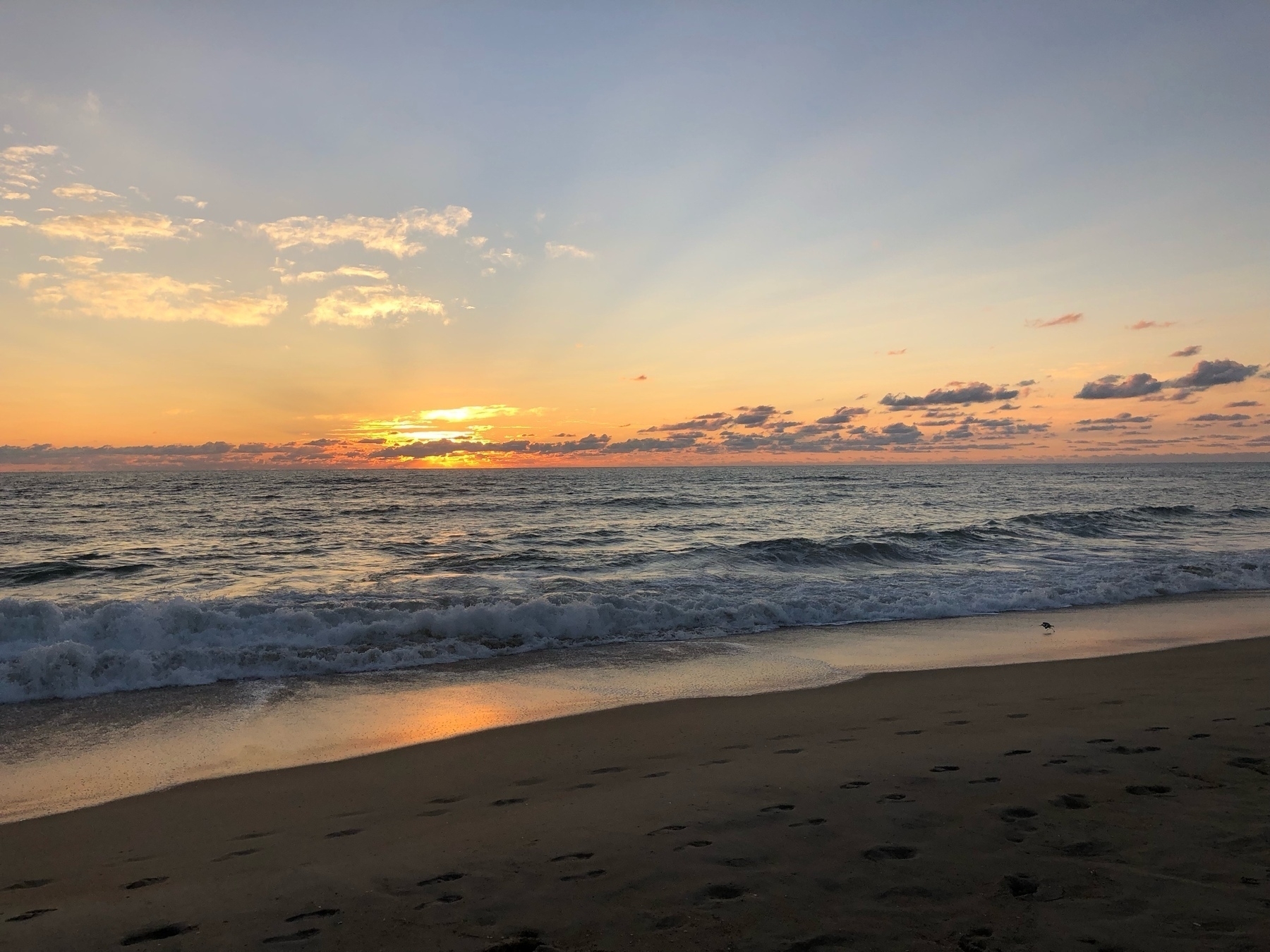A new day brought new places to type and click to resolve more kinds of technical issues. There was significant terror over several days. If I make it through the evening without a phone call, I may relax.
- In US tourist areas/high season, do not assume the convenience stores will have a “working” bathroom. I would estimate odds are worse than 50/50 against you.
- Hilton Home2 is pet-friendly …
Construction zones in Indiana have signs that scold you: Your speed is flashing number, flashing number, SLOW DOWN
“…The shifting shafts of shining weave the fabric of their dreams.”
Sunrise, Kill Devil Hills, NC

There is just no way a few hours at the ocean can’t be beautiful #obx
When you spend time reading well-researched writing on pensieves.
It’s a fascinating idea to explore with respect to note-taking, journaling, and capturing knowledge.
It’s a literary device, but our various technologies could give us those magical powers one day.
Homophones are an issue when attempting to dictate through voice recognition— Mail versus male in one recent attempt to return a text message. That it works as well as it does is wonderful, but sometimes even modifying pronunciation or changing word order doesn’t get the job done.
My first name comes from Hjalmer Lindberg.
Had he lived, he would have been a great uncle.
In World War II, he fought in the Battle of the Bulge with the 94th infantry. He was a sniper who was killed …
Contact interoperability via VCF or CSV file is simply terrible. It could be as simple as export/import. But that’s not the case. It’s export/translate/edit/import/edit
Long story short:
Don’t use files to exchange this data. Use services.
To get contacts from Outlook (Exchange) into iOS, I used the macOS-native Contacts app. I connected to the Exchange account that had the contacts needed. Then I connected to the empty iCloud account. I selected the Exchange account, selected all of the contacts, and dragged them en masse to the iCloud account. In a few minutes, all of the contacts appeared in iCloud with the correct data in the correct fields. A few minutes after that, they were on the destination iPhone.
Hot coffee and cookies on a cool morning